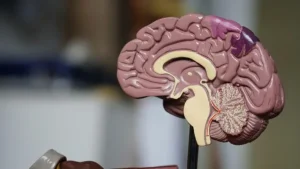Teens face unique stressors including academic pressure, complex social dynamics, and the challenges of growing up in today’s fast-paced digital world. These factors can heighten anxiety and interfere with their ability to function and enjoy life. Many teens find it difficult to voice their feelings, making it hard for parents to know when help is needed. Professional teen anxiety therapy offers a safe space for adolescents to explore their emotions, understand their anxiety, and learn coping strategies that build resilience. Evidence-based treatments like Cognitive-Behavioral Therapy (CBT) and Mindfulness techniques have shown great success in helping teens manage anxiety symptoms and gain confidence. Supporting teens early with these tools lays a foundation for lifelong mental wellness and improved quality of life.
Self-Care Tips for Teens: Building Resilience and Balance
Helping teens develop easy, effective self-care routines is invaluable for managing school-related stress and maintaining emotional wellbeing.
Being Active: Move to Feel Better
Physical activity is one of the most effective tools for reducing stress and boosting mood—perfect for teens juggling school demands. Whether it’s joining a sports team, going for a bike ride, dancing to their favourite music, or even just taking a walk with friends, moving the body helps release tension and improve mental focus. Encourage teens to find an activity they enjoy, making it easier to stick with it.
Mindful Breathing: Calm in the Moment
Teenagers can benefit greatly from learning easy mindful breathing exercises to use when feeling overwhelmed. Simple practices like imagining blowing out birthday candles, taking slow deep breaths, or counting their inhale and exhale can calm the nervous system and clear their mind. Mindful breathing is a quick, portable tool they can use anywhere—before a test, after a stressful social interaction, or anytime they feel anxious.
Quiet Time: Unplug and Recharge
With busy schedules and constant digital stimulation, teens need regular breaks to unplug and decompress. Scheduling quiet time—without phones, screens, or obligations—gives them space to reflect, relax, and simply “be.” Whether they journal, listen to calming music, or just rest, quiet moments are essential to mental and emotional rejuvenation.
Social Connection:
Spending quality time with supportive friends or family members fosters a sense of belonging and emotional safety. Even brief, genuine conversations can boost mood and decrease feelings of isolation.
Healthy Sleep Habits:
Quality sleep is vital for teen brain function and emotional health. Encourage consistent sleep schedules and a bedtime routine that limits screen use before sleeping to improve rest.
Back-to-school can stir mixed emotions for both kids and parents. By combining preparation, empathy, and practical self-care techniques, families can help children and teens tackle the new school year with greater confidence and resilience. Remember, small steps toward managing anxiety and building healthy habits have a big impact over time. If worries become overwhelming, reaching out for professional support ensures your child doesn’t face challenges alone.
Anu Chahauver, MSW, RSW & Emily Atkinson, MSW, RSW, are registered social worker / psychotherapist specializing in individual, family, couple and parenting
Your Therapy is a safe, welcoming, counselling therapy practice in the Greater Toronto Area. Thanks for reading and, as always, please feel free to reach out with questions about therapy or other mental health issues.








